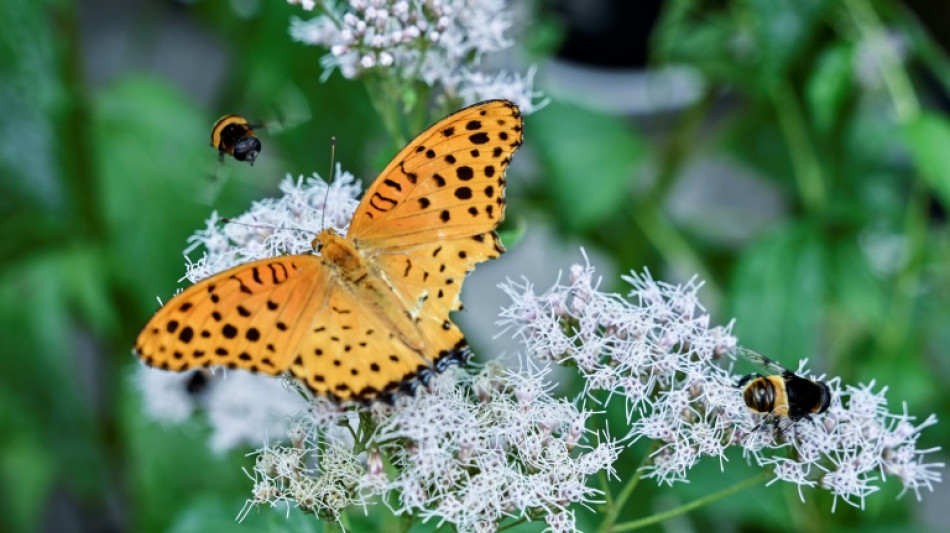
SCS
0.0200

A UN nature deal proposed Sunday calls to protect at least 30 percent of the planet by 2030 and asks rich countries to stump up $30 billion in yearly aid for developing nations to save their ecosystems.
Fraught talks seeking an agreement to save the species and ecosystems on which life depends came to a head as summit chair China presented a long-awaited compromise text.
Mapping out action for the next decade to reverse destruction that scientists say threatens a million species, the proposal called on wealthy countries to increase financial aid to the developing world to $20 billion annually by 2025, rising to $30 billion per year by 2030.
It also called on countries to "ensure and enable that by 2030 at least 30 percent of terrestrial, inland water, and coastal and marine areas" are effectively conserved and managed.
The text includes language safeguarding the rights of Indigenous people as stewards of their lands, a key demand of campaigners.
The compromise text was largely welcomed by conservationists, but still needs to be agreed upon by the 196 signatories to the Convention on Biological Diversity before it is finalized.
- Risk of pushback -
Opening the talks in Montreal, UN chief Antonio Guterres warned humanity had become a "weapon of mass extinction" and called on parties to forge a "peace pact with nature."
The COP15 meeting is being held in Canada because of China's strict Covid rules.
Delegates began examining the draft agreement just as the football World Cup between France and Argentina kicked off in Qatar.
A plenary session was scheduled for Sunday evening when countries will have the opportunity to approve the deal. Negotiations over the past 10 days have been slow however and observers warned the talks, scheduled to end on Monday, could run over.
"The Chinese presidency's draft final paper is courageous," said Germany's environment minister Steffi Lemke. "By protecting nature, we protect ourselves."
"By including a target to protect and conserve at least 30 percent of the world's lands and oceans, the draft text makes the largest commitment to ocean and land conservation in history," said Brian O'Donnell, of the Campaign for Nature.
But there was also concern that some areas of the text had been watered down.
Georgina Chandler, of Britain's Royal Society for the Protection of Birds, said she was worried about a lack of numeric "milestones" for restoring ecosystems by 2050.
"We're basically not measuring progress until 28 years' time, which is madness," she said.
- Funding dispute -
Another major issue of contention is the funding mechanism.
Developing countries, spearheaded by Brazil, were seeking the creation of a new fund to signal the Global North's commitment to the cause. But the draft text instead suggests a compromise: a "trust fund" within the existing Global Environment Facility.
Observers had warned the COP15 conference risked collapse as countries squabbled over how much the rich world should pay to fund the efforts, with developing nations walking out of talks at one point.
But Chinese environment minister Huang Runqiu said Saturday he was "greatly confident" of a consensus and his Canadian counterpart Steven Guilbeault said "tremendous progress" had been made.
The more than 20 targets also include reducing environmentally destructive farming subsidies, asking businesses to assess and report on their biodiversity impacts, and tackling the scourge of invasive species.
But the issue of how much money the rich countries will send to the developing world, home to most of the planet's biodiversity, has been the biggest sticking point.
Lower income nations point out developed countries grew rich by exploiting their natural resources and therefore they should be paid well to protect their own.
Current financial flows to the developing world are estimated at around $10 billion per year.
Several countries have recently made new commitments. The European Union has committed seven billion euros ($7.4 billion) for the period until 2027, double its prior pledge.
I.Horak--TPP